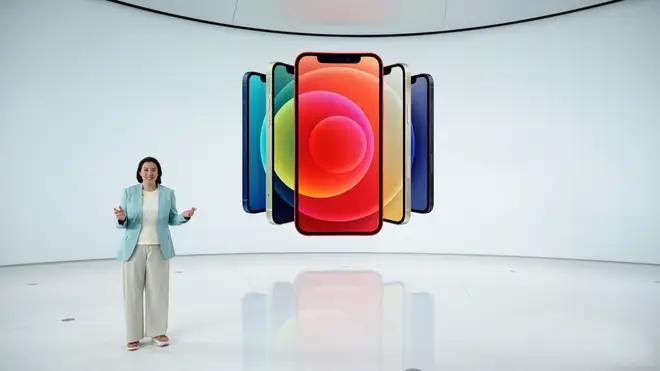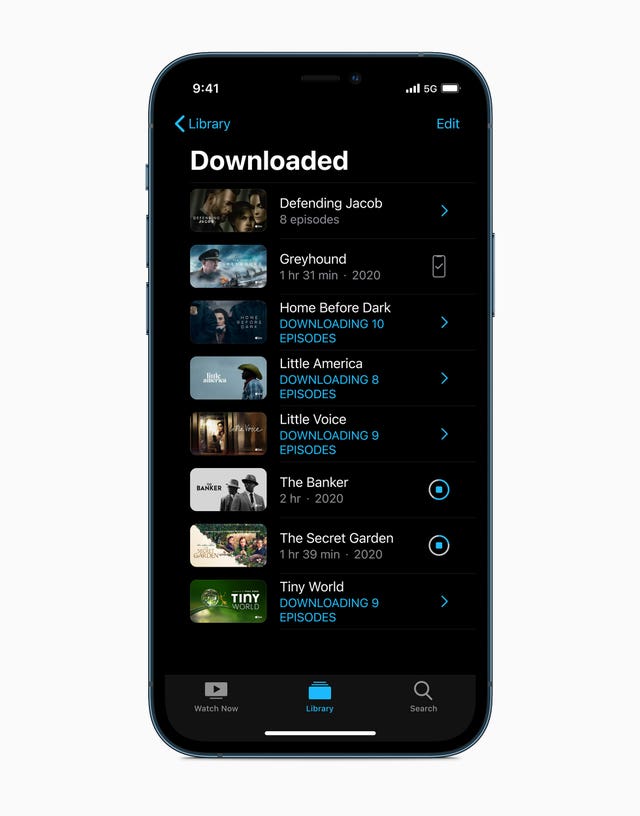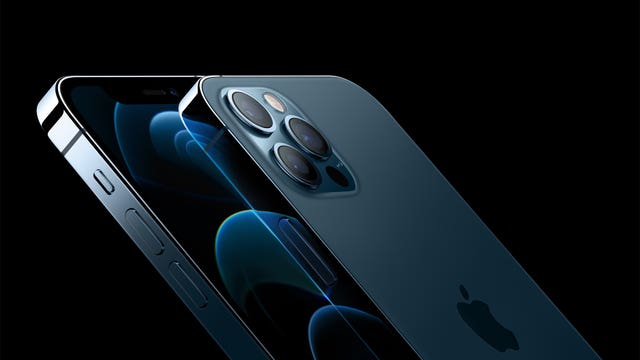
Natasha Devon 6pm - 9pm
14 October 2020, 08:04

The iPhone 12 range will be the first Apple phones to carry the mobile technology.
The introduction of 5G to the iPhone is a pivotal moment in the rollout of the technology, industry experts have said.
On Tuesday, the US tech giant revealed its new iPhone 12 line-up, with 5G connectivity available in all four new phones for the first time.
5G networks have been steadily rolling out in the UK since May last year, and several other high-profile phone manufacturers such as Samsung, Huawei and Google have launched devices which support the high-speed networks, but Apple has previously held off from incorporating it themselves.
5G networks are capable of transferring data at much higher speeds than existing 4G networks, meaning users are able to browse the web, play games and use other apps much more rapidly than previously.
But 5G is also able send larger amounts of data, making more complex tasks more accessible, such as streaming higher quality video and playing console-quality video games on a mobile device.

Experts have highlighted how, in years to come, 5G networks will be used to power things such as autonomous cars and surgeons carrying out surgery remotely via robots, where instant connectivity and the rapid processing of vast amounts of data are vital to success.
Ru Bhikha, mobiles expert at Uswitch.com said bringing this technology to the iPhone for the first time is likely to make many more people aware of it, and potentially keen to try it out.
“Before this launch, 16% of consumers said they were planning to upgrade to a 5G smartphone in the next year,” he said.
“The industry will be hoping that this iPhone will spur thousands more people to make the leap to 5G.”
Ben Wood, chief of research at CCS Insight, agreed that Apple’s embrace of the technology was a crucial landmark in the rollout of 5G.
“Although 5G devices have been available from pretty much every other smartphone-maker for over a year, there’s a strong argument that this line-up of 5G-enabled iPhones will be the market-maker for the technology,” he said.

“Inevitably, the iPhone 12 will mark the real start of 5G for the consumer mass market.
“Samsung and several Android phone-makers may have had an 18-month head start, but the limitations of early 5G devices, coupled with the time needed to expand network coverage, have meant momentum is still building.
“Apple is following its playbook by timing this launch for when the market is ready, rather than the technology.”
But one expert also warned that 5G remains a new, developing technology and large areas remain without 5G coverage, meaning it will still be some time before the true benefits are felt by all.
Although multiple mobile operators in the UK have begun to roll out their 5G networks, coverage remains limited to predominantly towns and cities.
Thomas Husson, principal analyst at Forrester, said: “Apple will do more for 5G than 5G will do for the new iPhones.
“Indeed, despite the hype, 5G is still a relative immature technology globally being rolled out by network operators and there are few new compelling consumer use cases.
“5G is way more important for the industry as a technology empowering a new wave of innovation and performance for the connected world.
“Even if 5G rollout is faster than the previous network generations, it will take a couple of years before we reach critical mass of end-users and experiences that go beyond faster speeds and better latency.”